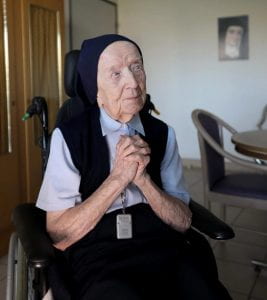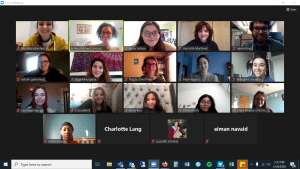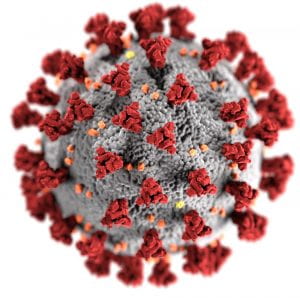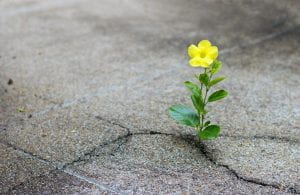As we joyfully embrace the many seasonal, religious, and spiritual celebrations of this beautiful time I would like to share with you a Christian/Vincentian perspective of Easter. This day of life, hope, and connection beyond our own understanding raises a simple question: where is God in everything that is happening?
Thanks to God we are alive! This is the Easter voice that I hear in my heart today. It is a voice I have heard many times in my life from people close to death because of natural disasters, poverty, hardship, violence, etc. And, over the past year I have heard survivors of the pandemic saying again and again… thanks to God we are alive!
I recently heard it said that “more than in other times, our age is characterized by its concern for the future and by wanting to glimpse the human person of tomorrow. Most agree about this: our way of being human needs to be transformed. The real human person is still a project… it is latent in the dynamic of evolution [and transformation]. This search for a new human person has been a recurrent theme in each historic cultural moment.”(1) Today more than ever we are aware that our way of being human is not sustainable. The urgent call for a new person is an Easter call… a call that echoes as a living memory of the resurrection. This is the call from God at the heart of the paschal mystery.
This morning, having endured the pandemic, we begin to see an end to this long day of the passion. The resurrection of Jesus is revealed to us in the real signs of what is happening in our lives, our country, and our world. All can perceive these new signs of life with which God is gracing us. For St. Vincent de Paul one of the primary challenges of Christian faith was to perceive and to live God’s life in our own lives. He expected the members of his spiritual family to conform with essential values that reflected a sustainable human experience. Vincent found these values exemplified in the life of Jesus Christ the evangelizer [humanizer] of the poor, who invites us to awaken dawns of resurrection amid dark nights of history.
“I beg Our Lord, Monsieur, that we may be able to die to ourselves in order to rise with Him, that He may be the joy of your heart, the end and soul of your actions, and your glory in heaven.”(2)
In Christian faith, from a Vincentian perspective, the value of all religious practices depends on their connection with real life. When we celebrate the resurrection, we are invited to experience life in all its forms, and to commit to protecting it. We are asked to defend human life, and all forms of life, now at risk due to our individualistic and consumeristic lifestyle. We recognize God’s life in us, and this life is what we celebrate. This life is what challenges us to change and to give of our own lives.
During these times, the celebration of the resurrection cannot be disconnected from all the essential issues that are challenging our very existence: social and environmental justice, human and communal rights, freedom, racism, and equity in all its forms. All these issues call us to reshape our Vincentian Mission and spirituality. For Christians, then, the celebration of the resurrection is simply a call to advance, giving concrete signs, the agenda of a new humanity and a new world!
“I ask O[ur] L[ord] to be the life of our life and the only aspiration of our hearts.”(3)
1) Cf. Leonardo Boff, La Resurrección de Cristo Nuestra Resurrección en la Muerte, 5th ed. (Editorial Sal Terrae, 2005), p. 9.
2) Letter 1202, To a Priest of the Mission, In Saintes, 27 March 1650, CCD, 3:616.
3) Letter 2433, To Charles Ozenne, Superior, In Poland, 26 October 1657, CCD, 6:576.
Reflection by:
Guillermo Campuzano, C.M.
Vice President of Mission and Ministry
Sustaining the Mission
Need a different kind of shot in the arm? Join us for Sustaining the Mission and get a mission booster! Sustaining the Mission is a mission engagement program designed for staff and faculty who have been at DePaul for at least a year.
This 90-minute workshop on Thursday, April 15th from 9:30-11:00 am, will invite you to consider how to practically apply DePaul’s mission to your everyday work and life. Together, we will examine how the mission can provide a deeper sense of meaning to your daily activities. As a member of the DePaul community, our goal is to help you reflect on concrete ways you can contribute to the advancement and sustainability of DePaul’s Vincentian mission within your team, department, area, division, etc. We will also help you to develop a mission integration plan. Please note that this program also meets one of the requirements for those interested in becoming a Mission Ambassador. Register Here.










